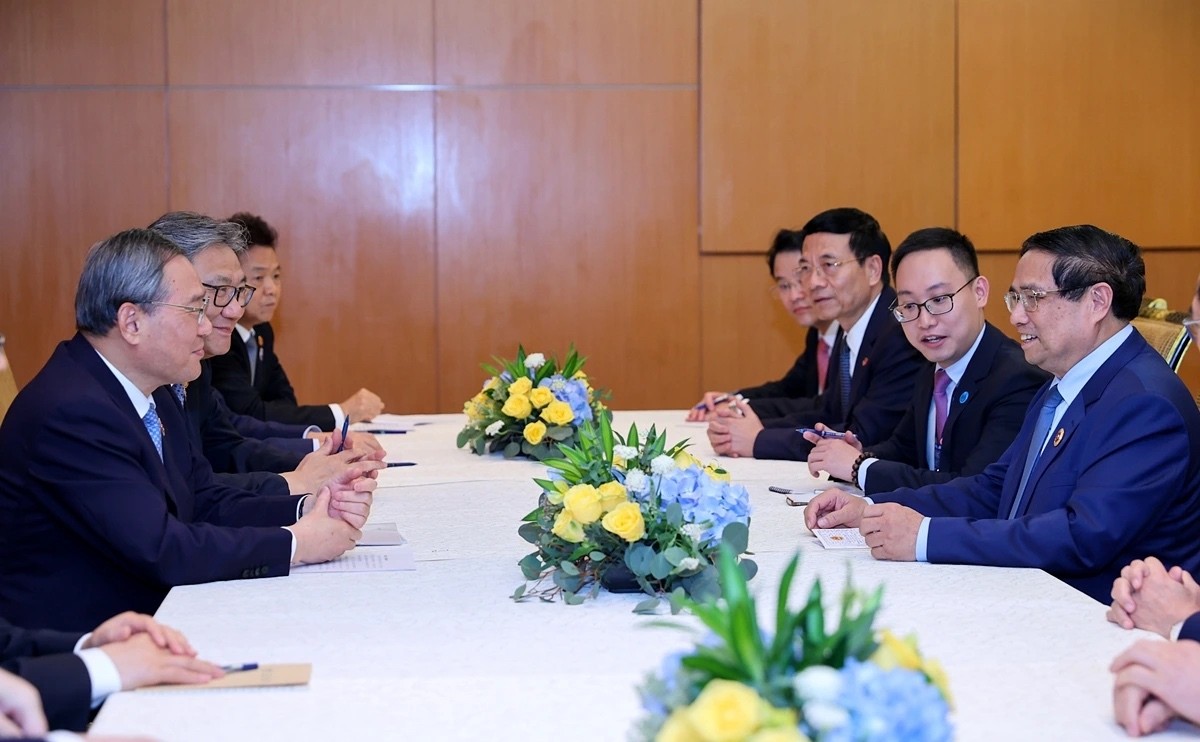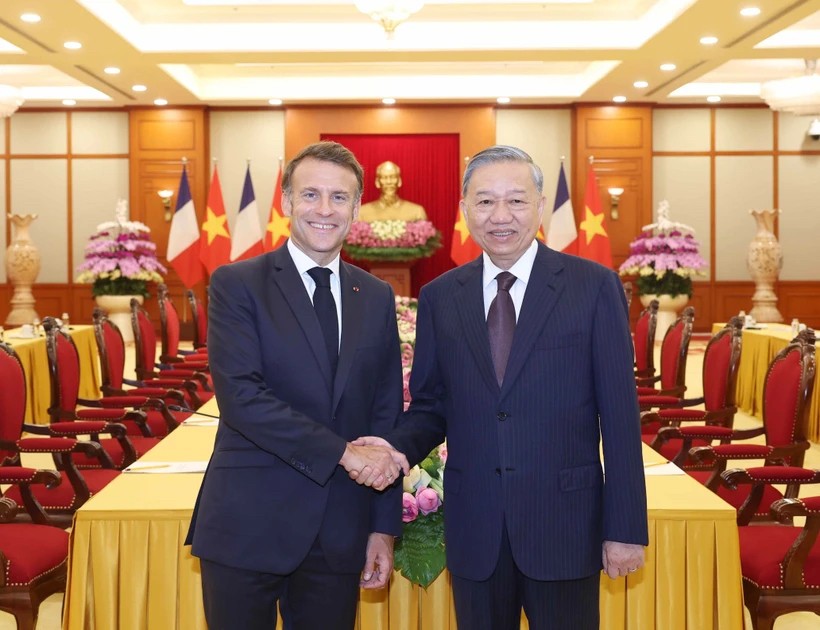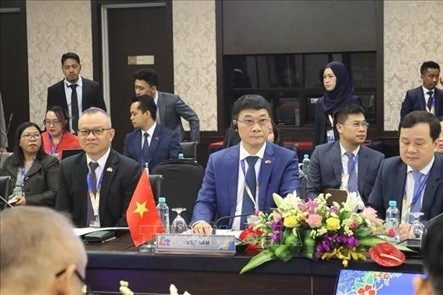Vietnam – Soviet Union Friendship
November 7 marks one of the important milestones in the history of the world, with the outbreak of the Russian October Revolution, which took place 100 years ago.
On this unforgettable day, we are again recalling the Vietnam – Soviet Union friendship due to the direct and profound influence of the revolution on the destiny of the Vietnamese people. It has been the original source of the close relationship between our nation and the Soviet Union.
As a person who used to study, live, and work in the Soviet Union, I would like to take this occasion to share some of the memories and events I witnessed that prove the close relationship between the two countries.
Those of my generation always looked to the Soviet Union with profound admiration, and wished to set foot on this far-off but near-to-our-heart country. Surprisingly, my dream came true in 1954. After the signing of the Geneva Agreements, I, along with 100 Vietnamese students studying in Nanjing (Guangxi, China) were sent to the Soviet Union to study Russian language to work as interpreters for Soviet experts who would help Northern Vietnam recover from the war.

Party General Secretary Le Duan (C) talking with a Soviet expert at the construction site of the Hoa Binh Hydropower Plant in 1980
Our most unforgettable memory is the sentiment reserved by the Soviet people for Vietnam. In the early 1950s, the Soviet Union faced innumerable challenges as the war against the Nazi had just recently ended. Despite this, they showed their generosity by virtually giving us the “shirts off their backs” and providing the best living and learning conditions to the best of their ability.
We are grateful to our teachers, who considered us as their own children and did their best to take us into a world of the beautiful, but complicated Russian language. It was difficult for them to teach and for us to learn the Russian language at that time, as we did not have textbooks or dictionaries.
Since then, more and more young Vietnamese were sent to the Soviet Union to study. In all, about 7,000 Vietnamese students studied various fields at different levels in the country, creating a valuable human resource for the resistance war and national construction. Many of these students then became key cadres in politics, military, diplomacy, science, culture, education and healthcare. As Uncle Ho said “People decided everything,” and “Cadres are roots of every task”, the support of the Soviet Union in developing this human resource is really a treasure for Vietnam.
Moreover, the Soviet Union’s material assistance was also great. Grants of 37mm anti-aircraft guns, Motolova trucks, and such contributed greatly to our victory in the Dien Bien Phu Campaign. In our resistance war against the American aggressors, a big number of Soviet modern weaponry, such as missiles, tanks, aircraft, were also sent to Vietnam, which helped us defend the North, liberate the South, and unify our country.
I, personally, will always bear in my mind an event that shows the timely and valuable assistance of the Soviet Union to our people. As many know, our people won a glorious victory, by shooting down many enemy aircraft, including B-52 bombers, in the “Dien Bien Phu Campaign in the Air” against the U.S. bombardments in Hanoi, Hai Phong, and other localities in northern Vietnam during the winter of 1972. However, as the battle was fierce, we had to use a big number of missiles, which depleted our stores. Right at that time, I was assigned to accompany a high-ranking delegation of our Party and State, led by Truong Chinh, member of the Politburo and Chairman of the State Council, to go to the Soviet Union to attend their 50th Anniversary. Comrade Truong Chinh asked the leaders of the Soviet Union to urgently supplement Vietnam with air-defense missiles, and that request was immediately accepted. I also witnessed another similar event in the 1970s when Vietnam had to face two border wars.
The Soviet Union’s support for Vietnam in socio-economic development was also incomparable. The Vietnamese people are familiar with names of the hydropower plants at Thac Ba, Hoa Binh, amd Tri An, the thermal power plants of Uong Bi and Pha Lai, the mechanical factories of Ha Noi and Cam Pha, the Vietnam – Soviet Oil and Gas Joint-venture, Vietsovpetro, the Bim Son Cement Plant, the Hanoi Polytechnic University, and the Vietnam – Soviet Friendship Hospital… Behind these facilities are the hard work, wisdom, and sentiments that the Soviet people have given to Vietnam.
I also could not forget a small event the clearly expresses the whole-hearted support of Soviet experts. In 1956-1957, I accompanied a delegation to visit a fish canning factory in Hai Phong. When suddenly a female Soviet expert, guiding the delegation, suddenly burst into tears when she saw that the Vietnamese workers had accidentally broken a blade causing that the whole assembly line to stop. They then had to wait for the replacement from the Soviet Union because Vietnam could not manufacture it at that time.
During the time I worked at the Vietnamese Embassy in Moscow, I received many Soviet war veterans who came to ask to go to Vietnam voluntarily and fight side by side with our soldiers and people against foreign invaders. Senior Soviet citizens came to the Embassy to donate their savings to our people while children asked the Embassy to help send notebooks, textbooks, pens, red scarves, to name a few to their Vietnamese friends.
Remarkably, the Soviet people also loved Uncle Ho, a noble symbol of our nation and the Vietnam – Soviet friendship. Each time Uncle Ho visited the Soviet Union, the top leaders, the elderly, and the young people of the country treated him as a part of their family, and not only as a leader of a friendly country. When Uncle Ho passed away, the Soviet leaders and people expressed their deep condolences: The whole Politburo, the Secretariat, and other leaders of the State and Government came to our Embassy to pay their respects. Meanwhile, Prime Minister Alexei Kosygin went to Vietnam to attend the funeral. The throngs of people queuing to pay homage to Uncle Ho at the Embassy when the embassy opened books of condolences in Moscow seemed endless, an unprecedented event.
As I was tasked to take charge of the relations between the two Parties and States at the Embassy, I also saw with my eyes the moving example and the effort that the Soviet experts took in preserving Uncle Ho’s body and in the construction of the Ho Chi Minh Mausoleum.
No words can describe the multi-faceted aspect of the Vietnam – Soviet Union friendship. Sometimes I ask myself what created and nurtured the close tie between the two far-off nations. Is it the similarity in destiny, cultural identities, love of justice, and sympathy with other nations in hardship? With the saying, “when eating the fruit, remember who planted the tree”, our people will never forget the noble qualities exhibited by the Russian people and the other states in the former Soviet Union./.
VNF/PSNews
Recommended
 National
National
Vietnam News Today (Jun. 2): Vietnamese Trade Mission Sounds Out Business Opportunities in United States
 National
National
Vietnam News Today (Jun. 1): Vietnamese, Japanese Firms Foster Partnership
 National
National
Vietnam News Today (May 31): Vietnam Strongly Supports Laos’s National Development
 National
National
Vietnam News Today (May 30): Vietnam, Venezuela Reinforce Ties Through People-to-people Diplomacy
Popular article
 National
National
Vietnam News Today (May 29): Vietnam and Hungary to Expand Cooperation into New Areas
 National
National
Vietnam News Today (May 28): Vietnam and China Discuss Strategic Cooperation Orientations
 National
National
Vietnam News Today (May 27): Vietnam Treasures Multifaceted Collaboration with France
 National
National



